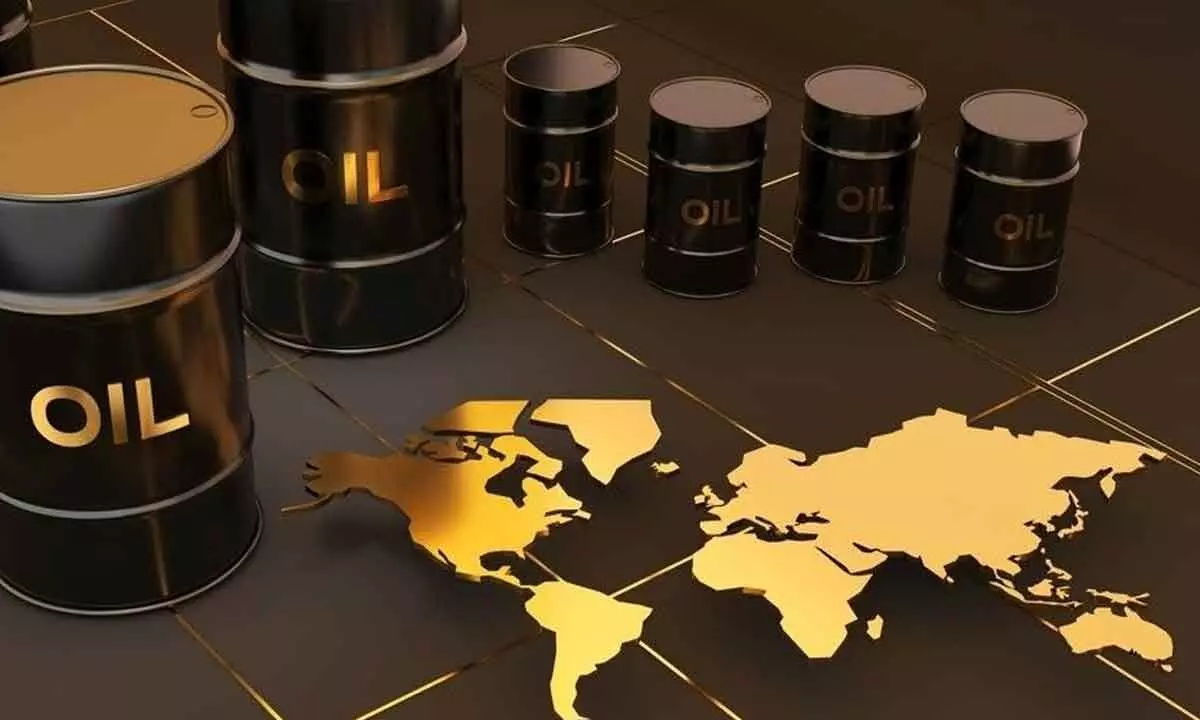Is it the beginning of the end for global oil demand?
Governments will have to push for more energy policy interventions to overcome the obstacles that remain
image for illustrative purpose

Half of the oil produced is used by the road transport sector. From the early 2030s, it will be illegal to sell new ICE cars in most of Europe and China and in many US states. EVs have been growing at 60% global adoption for many years. The last two years, the uptake is increasing at a rate approaching 100% growth. Energy giants like Saudi Arabia and Qatar will be replaced by Australia and Chile
Is it the beginning of the end for global oil demand? This assumes significance considering that the International Energy Agency (IEA) hints at a definite peaking of global oil demand this decade. This is especially so for the three primary energy sources, oil, gas and coal.
Fatih Birol, executive director of IEA, opined that "the age of seemingly relentless growth" for fossil fuel demand is at the beginning of the end. The energy group's World Energy Outlook, to be released in October, points to an impending, historic turning point.
"Based only on today's policy settings by governments worldwide — even without any new climate policies — demand for each of the three fossil fuels is set to hit a peak in the coming years. This is the first time that a peak in demand is visible for each fuel this decade — earlier than many people anticipated," Biorol wrote.
A peak in energy demand also means a peak in greenhouse gas emissions, the executive explained. The boom in clean energy technologies, including electric vehicles, will usher in a more energy-efficient era.
China, for one, has undergone structural shifts, with policymakers dedicating more resources to renewable and nuclear power. That, in addition to a slowing economy, point to softer coal demand for the world's largest coal consumer, according to the IEA.
"The 'Golden Age of Gas,' which we called in 2011, is nearing an end, with demand in advanced economies set to fall away later this decade. This is the result of renewables increasingly outmatching gas for producing electricity, the rise of heat pumps and Europe's accelerated shift away from gas following Russia's invasion of Ukraine," Birol said.
To be sure, the projected declines in oil, gas and coal demand still won't be enough to limit global warming to 1.5 degrees Celsius, in IEA's view. Obstacles remain and governments will still have to push for more energy policy interventions.
Additionally, the declines in demand won't be linear. Demand for fossil fuels could peak, structurally speaking, but there will still be spikes and plateaus on the way down, Birol said.
Meanwhile, last week Brent crude, the international oil benchmark, soared above $90 a barrel for the first time in 10 months. On Tuesday, it inched above $91 a barrel.
Experts predict that the $4.6 trillion oil and gas exploration market will be “going away” faster than anyone is expecting. It will be replaced at an ever increasing speed by the renewable energy market.
“The Oil industry has already peaked and will crash and burn very early in the 2030s. The fight for the countries which will replace the dominance of oil with renewables has already begun,” Birol added.
Half of the oil produced is used by the road transport sector. Our lives have been built around the use of the internal combustion engine (ICE). We design our houses, roads, and cities to accommodate our cars, commercial vehicles, trucks, and buses. But as we are discovering — these vehicles no longer need to be ICE vehicles. They do not have to run on diesel, petrol, or any other form of refined oil. And they shouldn’t. So what are you looking for?
Relying on forecasts from oil companies or from the IEA or governments with vested interests in oil or old-world forecasters whose customers are used to ‘inspecting and correcting’ their forecasts, will no longer do.
They predict that the $4.6 trillion oil and gas exploration market will be “going away” faster than anyone is expecting. It will be replaced by an ever increasing speed by the renewable energy market.
Rethink Energy produces an “Annual Primary Electricity” model each year. The analysis has led to the startling conclusion that: “The oil industry has already peaked and will crash and burn very early in the 2030s. The fight for the countries which will replace the dominance of oil with renewables has already begun.”
Half of the oil produced is used by the road transport sector. From the early 2030s, it will be illegal to sell new ICE cars in most of Europe and China and in many US states. EVs have been growing at 60% global adoption for many years. The last two years has seen an increase in uptake at a rate that is approaching 100% growth.
Energy giants like Saudi Arabia and Qatar will be replaced by countries like Australia and Chile, which will fully harness their colossal solar potential, while some desert countries, like Saudi, will fail to fully appreciate that its landscape could also be totally transformed by solar.

